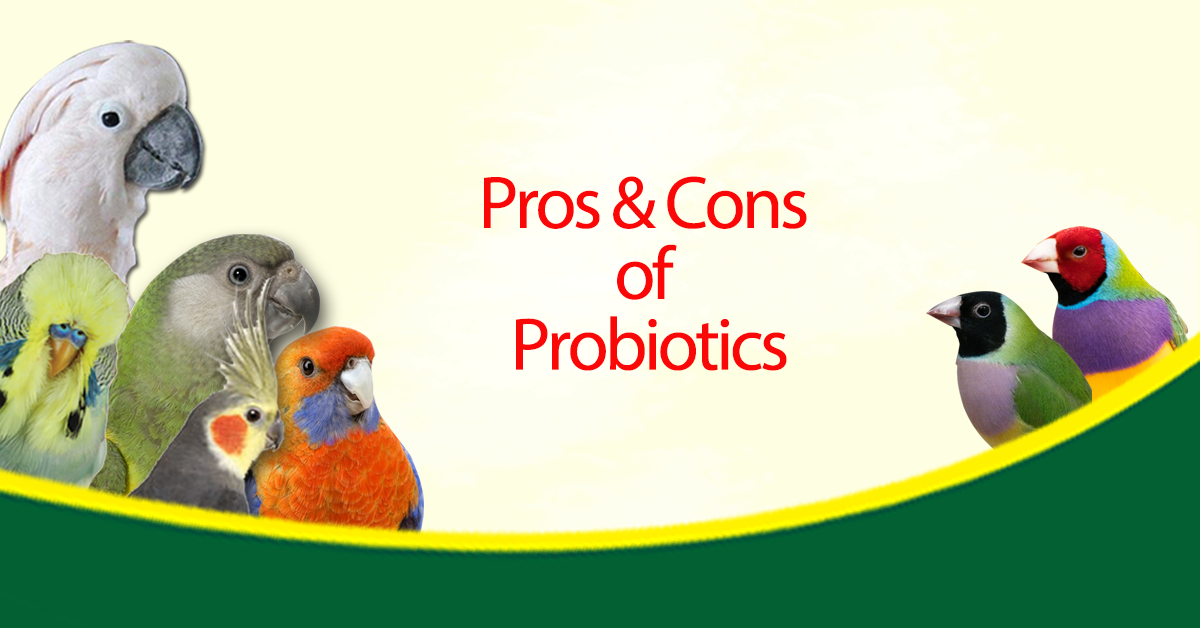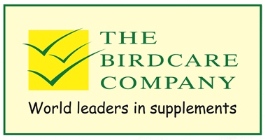Posted by Malcolm Green on 1st Feb 2018
Pro's and Con's of probiotics

Some people believe that certain species of birds do not have any beneficial bacteria in their gut (Sterile Bowel Theory). Here is our Technical Director's comments on this.
Let me start by saying that the
notion that Australian finches (or any other birds for that matter) don’t have
beneficial bacteria in the gut seems completely bizarre. There are a whole
bunch of digestive and nutritional jobs that gut bacteria do that animals and
birds can’t. For example we can’t make a whole host of vitamins so we rely on
the bacteria to do that for us.
Given that all multicellular animals have a symbiotic (mutually beneficial)
relationship with gut bacteria it would seem incomprehensible that a niche
group of birds like Australian finches should have evolved all those hundreds
of biochemical processes to do the jobs themselves and a way of
killing all the bacteria they eat naturally in their foods. And what would be
the evolutionary advantage to do that? And if there was an evolutionary benefit
surely other creatures would have done it too. It is often argued that we
humans have more bacterial cells in our bodies than we have cells of our own.
The same is almost certainly true of birds.
If finches absorb their food more quickly than other species (I have no idea if
that is true or not) then their need for digestive support would be greater not
less than animals with a slower food transit time.
But if we discard the Sterile Bowel Theory that doesn’t mean that supplementing with probiotics is automatically a good thing to do.
The gut of the newly hatched baby bird will be sterile but the beneficial bacteria we are talking about are everywhere. You will find them in soil, on plants and in food. The parents crop will be crawling with them so from their very first feed their gut flora will be being established. But they will be getting germs from the same sources as they get beneficial bacteria. So the trick is to help the good guys and hinder the bad guys. We can do that in two ways:
- 1.Feed the good guys. Foods specifically designed for
beneficial bacteria include high fibre sources and some herbal materials. The
diets of seed eating birds are dominated by starch and are fairly low in fibre
(some of the oily seeds fed to parrots are better). Hi starch, low fibre diets
are bad for all of us. In humans they encourage obesity, diabetes, ulcers etc.
In seed-eating birds they are probably less serious as that is what they have
evolved to eat. But wild birds will have access to a bigger range of sometimes
higher fibre feeds than our caged birds.
So it can make sense to support the natural gut flora with nutrients specially selected for that purpose and these are called prebiotics.
- 2.The second approach is to actually provide the beneficial bacteria themselves. These are the probiotics. When we first entered the market over 20 years ago probiotics were all the rage – they still are in France. But they do need to be used with a little thought. The gut should naturally have thousands of different strains of bugs in them. That is healthy. But our EU regulators seem to think that probiotic products should only contain a single strain. That risks overwhelming the gut with a single bug. So it is important to select probiotics that will help create a good environment for all beneficial bacteria rather than reproduce like mad and dominate.
